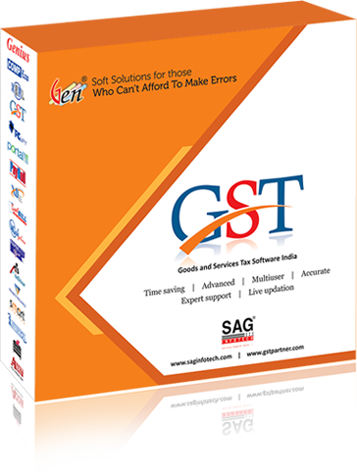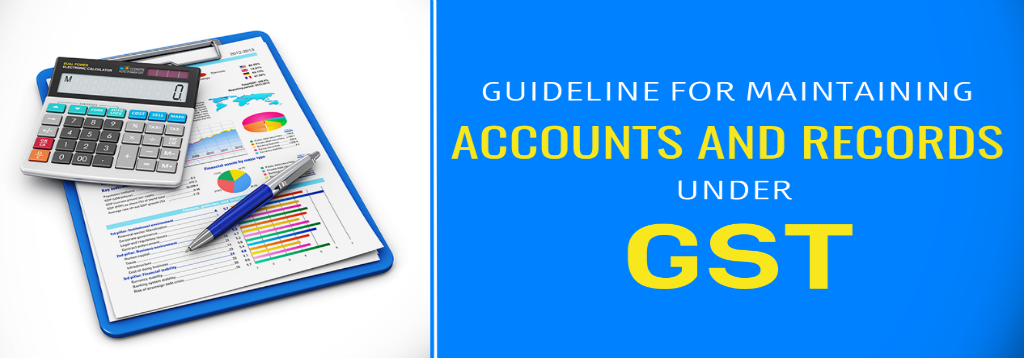Recently the Goods and Services Tax (GST) in India has rolled out various heavy implication over the financial maintenance industry in which it has mandated the business entities to regularize the accounts and records of the transactions. In fact, each and every law prevailing has the government the taxpayer community to maintain certain accounts and registers in which records must be maintained for a certain period of time. The records of transactions are the very basis which is required to file the taxes and to be presented in front of official authority in case of any checkout. Then there is a series of assessment which will determine the tax liability of a taxpayer under GST scheme.
Contents
Old Tax System:
In past, there was an obligation by the government authority to retain the official records and accounts of transactions which the business entity had occupied afterward the dealings. The invoices and the bills were required to be in the original state and must be presented in front of the authorized tax personnel whenever demanded. There were numerous indirect taxes prevailing in the country which was regularly maintained by the tax authorities Several important books of accounts were on the priority of the inspection and had undertaken by various duties like:
# Excise Duty
The excise duty is levied on the domestic goods and services just as the customs duty is levied on the foreign goods coming in the nation. The general records which are to be maintained by the taxpaying entity are RG-1 register (Daily stock account of excisable goods), Form IV register (Register of receipt or issue of raw material), invoice book and job work register. These registers are mandatory as per the government rules and must be up to date in case of frequent check up from the IT department.
# Service Tax
The service tax is accompanied with bill register, receipt register, debit/credit notes register, CENVAT credit register and all the previous records related to the said duty.
# VAT (Value Added Tax)
The tax is used to maintain the price portfolio by adding extra duty to the manufactured goods and commodities. The records and register which are to be maintained under the VAT is purchase records, sales records, stock records, VAT account containing details of input and output tax, works contract account.
Goods and Services Tax (GST) Requirement
Now, in the present, the Goods and service tax in India is about to expand in every increasing rate. All the activities which will be now under GST of manufacture, provision of taxable service and sale of goods now have to undergo the same rules and laws requiring them to maintain the records in consolidated form rather than separate form maintained earlier.
Under the GST there would be accounts and records which have to be maintained. Those are:
1. Register of goods produced
2. Purchase registers
3. Sales registers
4. Stock registers
5. Input tax credit availed record
6. Out tax liability record
7. Output tax paid record
8. Other records as specified
The responsible taxpayer who is registered under Model GST Law (section 42 of Model GST Law) is subjected maintain the records and entries for a specific time period which is specified in section 42 shall be kept for the period of 60 month from the last date of filing of Annual Return (i.e Sept of following year.) [secton 43(1)]
How to maintain the required accounts and records in the goods and service tax in India.
The records are prescribed to be maintained only in the electronic form and manual bookkeeping is not allowed. Even the electronically maintained records must be in the format designated by the government authority itself.
Audit of Records and accounts under the goods and service taxation:
The registered taxpayer must get an audit to the Chartered or Cost Accountant after the limit exceeds over its prescribed turnover. And same must be submitted in the annual filing of taxes by the end of December as Financial Year under Section 30 of Model GST Law month under the prescribed format.
Here is the list of Accounts and Records:
| Account/Records | Information Required | By Whom? |
| Register of Goods Produced | Account shoud contain detail of goods manufactured in a factory or production house | Every assessee carrying out manufacturing activity |
| Purchase Register | All the purchases made within a tax period for manufacturing of goods or provision of services | All Assessee |
| Sales Register | Account of all the sales made within a tax period must be maintained | All Assessee |
| Stock Register | This register should contain a correct stock of inventory available at any given point of time | All Assessee |
| Input Tax Credit Availed | This register should maintain the details of Input Tax Credit availed for a given tax period | All Assessee |
| Output Tax Liability | This register should maintain the details of GST liability outstanding to be adjusted against input credit or paid out directly | All Assessee |
| Output Tax Paid | This register should maintain the details of GST paid for a particular tax period | All Assessee |
| Other Records Specified | Government can further specify by way of a notification, additional records and accounts to be maintained | Specific Businesses as notified by the government |
For more details and updates on GST India, kindly download the GST Helpline mobile application that is available on both android and iOS platforms. The mobile application comes with a very light user interface and gives answers to each and every query related to GST.








One Reply to “Guideline For Maintaining Accounts and Records Under GST”